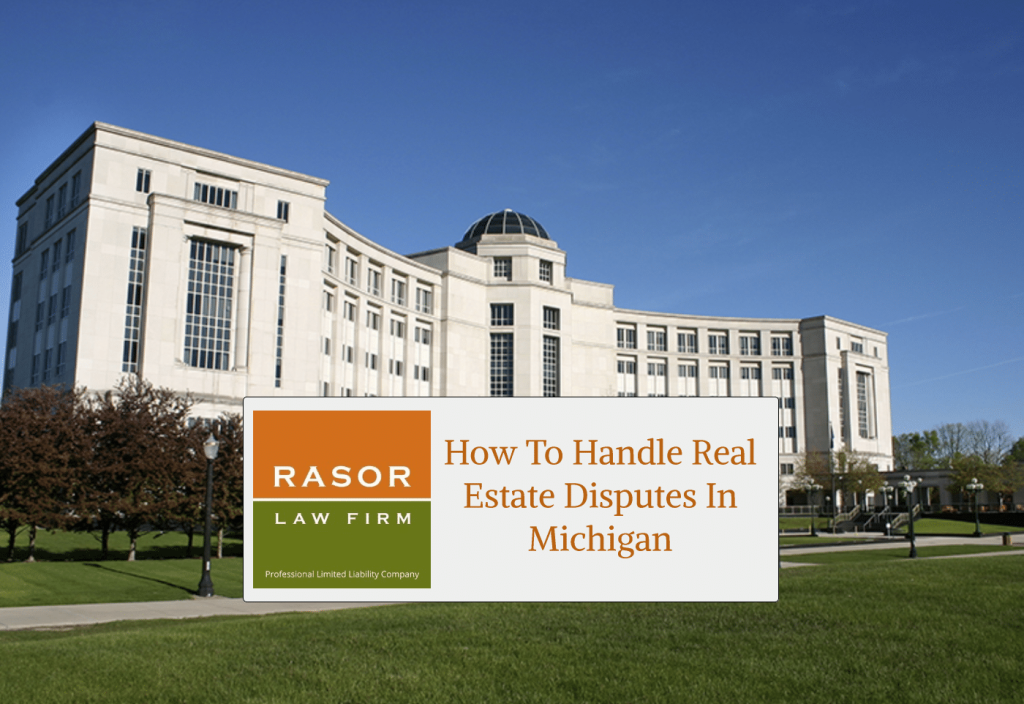Dealing with property-related disagreements can be one of the most frustrating experiences for a homeowner or investor. Whether you’re buying your first home, managing a rental property, or involved in a complex commercial deal, conflicts can arise unexpectedly. Real Estate Dispute Resolution in Michigan offers a pathway to resolving these issues without escalating into a long, costly legal battle. This process can help you find clarity, reach mutually agreeable outcomes, and preserve relationships with other parties. From neighbor conflicts over property lines to more substantial disputes between buyers and sellers, finding a fair solution is essential. Working through these complex matters requires not only legal knowledge but also strategic communication and timing. In this article, we’ll explore how Real Estate Dispute Resolution works in Michigan, why it’s important, and what you can do to better manage these disputes if they happen to you. Let’s walk through the process together and show you how to navigate it successfully.
Understanding What Real Estate Dispute Resolution Really Means
Real Estate Dispute Resolution is the legal and procedural approach to addressing disagreements involving property in Michigan. These disputes can arise for a wide range of reasons—from boundary line conflicts and zoning issues to breaches of contract related to purchases or leases.
For instance, if two neighbors disagree about the location of a property line, it can quickly become a heated situation. Another common example is a sale falling apart because a seller didn’t disclose a known issue with the property, leaving the buyer frustrated and seeking restitution. Real Estate Dispute Resolution provides the structure and legal framework to help all parties find a resolution with fairness and, ideally, without lengthy court battles.
This process could involve informal negotiations, mediation, arbitration, or litigation, depending on the complexity of the issue. Each method offers its own timeline, cost, and level of formality, but all aim to resolve disputes while minimizing emotional and financial stress. Having a clear understanding of your rights and potential remedies is the first step toward protecting your interests when property conflicts occur.
Why It’s Essential to Handle Property Disputes the Right Way
The impact of unresolved real estate disputes can reach far beyond a single transaction or property boundary. In Michigan, mishandled real estate conflicts can affect financial outcomes, property values, and long-term relationships between neighbors or business partners. These disagreements, if not addressed properly, can suddenly escalate, leading to litigation and unwanted expenses.
Beyond costs, the emotional toll can also be significant. Parties involved may experience high levels of stress, become entangled in months of delays, or jeopardize their reputation within their community or industry. Choosing a structured and fair method of Real Estate Dispute Resolution is not just a legal matter—it’s a strategic and emotional decision that impacts future peace of mind.
- Scenario 1: A homebuyer moves into a new property and discovers undisclosed water damage. They sue the seller, leading to months in court and thousands of dollars in legal fees.
- Scenario 2: Two developers disagree on a shared driveway easement, delaying a commercial project and causing financial losses for both sides.
- Scenario 3: Neighbors argue over tree overgrowth crossing lot lines. Without mediation, the dispute escalates until one party files a nuisance claim.
What the Resolution Process Looks Like in Michigan Property Cases
- Step 1: Identify the issue and gather all relevant documents, such as contracts, deeds, or emails connected to the dispute.
- Step 2: Attempt informal communication or negotiation between the conflicting parties. Often, a frank discussion can lead to compromise.
- Step 3: If informal steps fail, pursue formal methods like mediation, arbitration, or legal action through a real estate attorney or professional mediator familiar with Michigan law.
Expert Advice for Navigating Real Estate Disputes Successfully
Your Questions Answered About Michigan Property Dispute Resolution
How Rasor Law Firm Helps You Every Step of the Way
Rasor Law Firm is well-regarded for guiding clients through the multifaceted world of real estate law in Michigan. Our team understands the stress and uncertainty that come with property disputes and works diligently to offer a clear plan of action tailored to each individual situation. With years of experience handling Real Estate Dispute Resolution, we focus on efficiency, transparency, and results. We aim to resolve your dispute swiftly, minimize costs, and help you avoid unnecessary court procedures whenever possible. We do more than represent you—we advocate for your peace of mind and represent your interests with unwavering commitment. Whether you need someone to draft a response letter or represent you in mediation or court, our real estate attorneys stand by your side.


